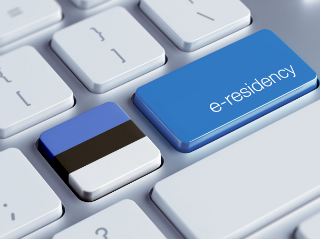When I tell in Europe that I come from Estonia, most people react by saying something like, “Oh you are the digital natives!”, or “I know, it’s the digital country”

If the accusation against the collaborative economy is that they don’t pay taxes, then it is up to the administration to come up with solutions so that they can easily pay those taxes. The collaborative economy is all about the digital world and it only needs a platform where taxes can be filed with one click. The state has to be a partner of companies and citizens, not their supervisor.
by
Kaja Kallas*
Given that Estonia is a very small country of just 1.3 million people, it is definitely our strength to be known as a digital society. But how has Estonia reached this status? How have we built the digital state?
In Estonia the state has been the driver of digital development. The process started in 2000 with the creation of digital identities in cooperation with banks. To ensure that people would take up digital identities, the state needed to provide services where citizens had to use them. So the government simultaneously created both demand and supply.
The starting point was tax declarations. People started declaring their taxes online and would receive their tax returns by online transfer a few days after filing the declaration. Nowadays, Estonia is probably the only country in the world where people actually compete in how fast they do their taxes ‒ the record is currently under two minutes. Considering that over 95% of the overall population do their taxes online, we can say that people have taken up digital identities quite well.
People in the 21st century are increasingly living neither online nor offline but are rather engaged in what we now call ‘onlives’. This lifestyle is largely dependent on the ability to identify oneself in the online world. Creating secure and encrypted digital identities that enable people to identify their communication or business partners, sign agreements and communicate with the state is crucial.
We know that countries compete for people and investment. Small countries with a relatively bad climate don’t have much to attract investments and people. During the years after the introduction of digital identities, Estonia acknowledged that our digital services have made doing business in Estonia a lot easier. But only Estonian residents could access these services. So we decided to create the e-residency programme that allows foreigners to become e-residents of Estonia, establish their companies there, and enjoy our digital services even if they do not live in our country. Since the introduction of the e-residency programme, almost 20,000 people have become e-residents.
The digital revolution has brought many changes to the way we behave and live our lives. Any kind of disruption brings opposition, but the state has different ways to react: it may try to abolish or to not allow the changes, or it can go with the flow and make the transition as easy and smooth as possible. Estonia has chosen the latter.
If the accusation against the collaborative economy is that they don’t pay taxes, then it is up to the administration to come up with solutions so that they can easily pay those taxes. The collaborative economy is all about the digital world and it only needs a platform where taxes can be filed with one click. The state has to be a partner of companies and citizens, not their supervisor.
To avoid a digital divide, it is also the state’s obligation to come up with an educational response to the changes that are taking place. How to improve people’s digital skills is a big and worrisome question that needs an answer. Humans will never be better in computing than a computer, but it is important that people feel comfortable with technology. For that purpose, Estonia has included coding and robotics in pre-school activities (it’s a great way of playing too) and we teach our children how to behave and stay on the safe side of the internet.
Teachers have to use digital tools in their curricula and our e-school system allows parents to follow their children’s results, homework and teachers’ comments via an app. We also have professional educational technologists who can help teachers find the right tools.
There are many more examples from different areas of life where we have decided to deploy digital solutions in our governance. But the key is that governments need to understand that the technical transformation is not going to stop and we should take the necessary decisions to help our people adapt to the digital age.
If your country is still hesitant, Estonia can help you. Don’t try to reinvent the wheel ‒ use the solutions we have already tested.
*MEP and European Young Leader


